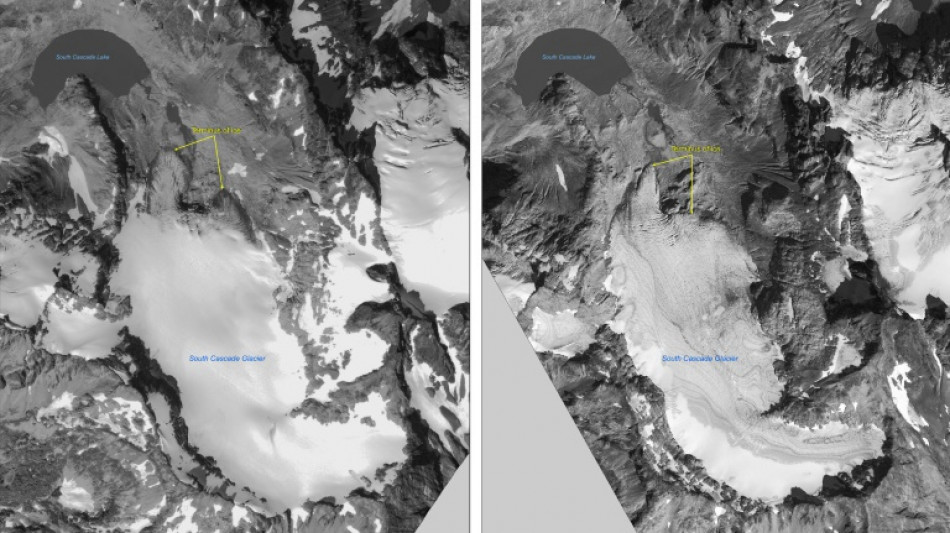
-
 Myanmar pro-military party claims Suu Kyi's seat in junta-run poll
Myanmar pro-military party claims Suu Kyi's seat in junta-run poll
-
Fed chair Powell says targeted by federal probe

-
 Trailblazing Milos Raonic retires from tennis
Trailblazing Milos Raonic retires from tennis
-
Australia recalls parliament early to pass hate speech, gun laws

-
 'One Battle After Another,' 'Hamnet' triumph at Golden Globes
'One Battle After Another,' 'Hamnet' triumph at Golden Globes
-
Japan aims to dig deep-sea rare earths to reduce China dependence

-
 Top UN court to hear Rohingya genocide case against Myanmar
Top UN court to hear Rohingya genocide case against Myanmar
-
US sends more agents to Minneapolis despite furor over woman's killing

-
 Trump says Iran 'want to negotiate' after reports of hundreds killed in protests
Trump says Iran 'want to negotiate' after reports of hundreds killed in protests
-
Bangladesh's powerful Islamists prepare for elections

-
 NBA-best Thunder beat the Heat as T-Wolves edge Spurs
NBA-best Thunder beat the Heat as T-Wolves edge Spurs
-
Ukraine's Kostyuk defends 'conscious choice' to speak out about war

-
 Trump says working well with Venezuela's new leaders, open to meeting
Trump says working well with Venezuela's new leaders, open to meeting
-
Asian equities edge up, dollar slides as US Fed Reserve subpoenaed

-
 Hong Kong court hears sentencing arguments for Jimmy Lai
Hong Kong court hears sentencing arguments for Jimmy Lai
-
Powell says Federal Reserve subpoenaed by US Justice Department

-
 Chalamet, 'One Battle' among winners at Golden Globes
Chalamet, 'One Battle' among winners at Golden Globes
-
Turning point? Canada's tumultuous relationship with China

-
 Eagles stunned by depleted 49ers, Allen leads Bills fightback
Eagles stunned by depleted 49ers, Allen leads Bills fightback
-
Globes red carpet: chic black, naked dresses and a bit of politics

-
 Maduro's fall raises Venezuelans' hopes for economic bounty
Maduro's fall raises Venezuelans' hopes for economic bounty
-
Golden Globes kick off with 'One Battle' among favorites

-
 Australian Open 'underdog' Medvedev says he will be hard to beat
Australian Open 'underdog' Medvedev says he will be hard to beat
-
In-form Bencic back in top 10 for first time since having baby

-
 Swiatek insists 'everything is fine' after back-to-back defeats
Swiatek insists 'everything is fine' after back-to-back defeats
-
Wildfires spread to 15,000 hectares in Argentine Patagonia

-
 Napoli stay in touch with leaders Inter thanks to talisman McTominay
Napoli stay in touch with leaders Inter thanks to talisman McTominay
-
Meta urges Australia to change teen social media ban

-
 Venezuelans await political prisoners' release after government vow
Venezuelans await political prisoners' release after government vow
-
Lens continue winning streak, Endrick opens Lyon account in French Cup

-
 McTominay double gives Napoli precious point at Serie A leaders Inter
McTominay double gives Napoli precious point at Serie A leaders Inter
-
Trump admin sends more agents to Minneapolis despite furor over woman's killing

-
 Allen magic leads Bills past Jaguars in playoff thriller
Allen magic leads Bills past Jaguars in playoff thriller
-
Barca edge Real Madrid in thrilling Spanish Super Cup final

-
 Malinin spearheads US Olympic figure skating challenge
Malinin spearheads US Olympic figure skating challenge
-
Malinin spearheads US figure Olympic figure skating challenge

-
 Iran rights group warns of 'mass killing', govt calls counter-protests
Iran rights group warns of 'mass killing', govt calls counter-protests
-
'Fragile' Man Utd hit new low with FA Cup exit

-
 Iran rights group warns of 'mass killing' of protesters
Iran rights group warns of 'mass killing' of protesters
-
Demonstrators in London, Paris, Istanbul back Iran protests

-
 Olise sparkles as Bayern fire eight past Wolfsburg
Olise sparkles as Bayern fire eight past Wolfsburg
-
Man Utd knocked out of FA Cup by Brighton, Martinelli hits hat-trick for Arsenal

-
 Troubled Man Utd crash out of FA Cup against Brighton
Troubled Man Utd crash out of FA Cup against Brighton
-
Danish PM says Greenland showdown at 'decisive moment' after new Trump threats

-
 AC Milan snatch late draw at Fiorentina as title rivals Inter face Napoli
AC Milan snatch late draw at Fiorentina as title rivals Inter face Napoli
-
Venezuelans demand political prisoners' release, Maduro 'doing well'

-
 'Avatar: Fire and Ashe' leads in N.America for fourth week
'Avatar: Fire and Ashe' leads in N.America for fourth week
-
Bordeaux-Begles rout Northampton in Champions Cup final rematch

-
 NHL players will compete at Olympics, says international ice hockey chief
NHL players will compete at Olympics, says international ice hockey chief
-
Kohli surpasses Sangakkara as second-highest scorer in international cricket


In US Northwest, South Cascade is where glacier science grew up
For nearly 70 years scientists have been probing, measuring, drilling and generally getting to know South Cascade Glacier in the US Northwest, developing and honing skills now used worldwide.
Generations of glaciologists have studied the slow-moving ice mass in Washington state, which is one of five so-called "benchmark" US glaciers, keeping tabs on how they are changing as human activity warms the Earth.
While glaciers have been studied in Europe since at least the 19th century, what scientists learned here has been invaluable.
"A lot of the scientific methods that we use to measure glaciers were developed here," said Andrew Fountain, professor emeritus at Portland State University, who specializes in glaciers and climate change.
That includes the use of ice radar, which allowed researchers to see just how thick the ice is in a spot where a glacier has probably existed for upwards of a million years.
- Ideal for studying -
South Cascade Glacier sits in a basin at the head of the South Fork of the Cascade river, which flows down ultimately into Puget Sound.
The size of the basin -- more than 2 square miles (over 6 square kilometers) -- along with its straightforward geometry made it ideal to study for scientists wanting to know how these dynamic bodies are faring in the changing world.
A glacier is a perennial accumulation of snow and ice that is always on the move, abrading the rocks underneath and -- over a long enough period of time -- carving valleys.
Measurements began at the site in 1958, according to the US Geological Survey, the government body that studies the natural environment.
The following year, the USGS began what is known as a "continuous mass balance" measurement project that keeps a running tally of streamflow runoff, precipitation, air temperature, barometric pressure, snow thickness and density, ice ablation, surface speed and surface altitude.
- Retreating -
The data collected here, as well as from the four other benchmark glaciers -- three in Alaska and one in Montana -- provides a continuous record, capturing their seasonal variations and their year-to-year changes.
Over nearly seven decades, glaciologists have been able "to track how the glacier is responding to climate."
And what they are seeing is not good, says Fountain.
"As you can imagine, it's been retreating like crazy" and is now about half the size it was when measurements started.
With a very complete record of the conditions, it's clear that the rising temperatures of the industrial age are to blame, said Fountain.
A warmer atmosphere reduces the amount of precipitation that falls as snow, and increases the ambient air temperature so what snow does fall, doesn't hang around.
While people may find it difficult to discern any long-term trends from the wildly differing amounts of snow a region can experience from year to year, a shrinking glacier is an obvious sign that the balance of nature is off.
"We can understand very viscerally that the climate is warming," he said.
Since President Donald Trump -- a climate change skeptic -- came to power, he and billionaire adviser Elon Musk have set about slashing government spending, eliminating tens of thousands of government jobs, including scientists.
This week, researchers at the Environmental Protection Agency -- which tackles environmental issues including pollution, clean water and climate change -- were put in the firing line.
For Fountain, whatever the reason a government has for diminishing the work of scientists, they should not be ignored.
About two percent of the world's water is stored in glaciers, and if they all melt, it will run eventually into the oceans, further raising sea levels and imperiling human settlements along tens of thousands of miles (kilometers) of coastlines worldwide.
That, amongst other reasons, is why the science of glaciology that came of age at South Cascade Glacier is invaluable, said Fountain.
"Just because we don't want to hear a message doesn't mean it isn't happening," he said.
D.Khalil--SF-PST



